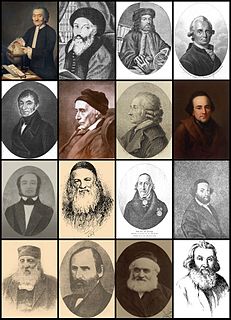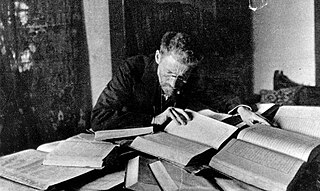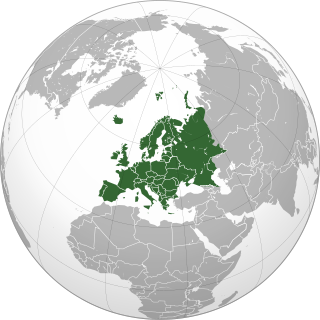Jewish writers by country:
Jewish writers by country:
| This article includes a people-related list of lists. |
Antisemitism is hostility to, prejudice, or discrimination against Jews. A person who holds such positions is called an antisemite. Antisemitism is generally considered to be a form of racism.
This list of lists may include both lists that distinguish between ethnic origin and religious practice, and lists that make no such distinction. Some of the constituent lists also may have experienced additions and/or deletions that reflect incompatible approaches in this regard.

Ashkenazi Jews, also known as Ashkenazic Jews or, by using the Hebrew plural suffix -im,Ashkenazim are a Jewish diaspora population who coalesced in the Holy Roman Empire around the end of the first millennium.

Debrecen ( DEB-rət-sen, Hungarian: [ˈdɛbrɛt͡sɛn] is Hungary's second largest city after Budapest. It is the regional center of the Northern Great Plain region and the seat of Hajdú-Bihar county. It was the largest Hungarian city in the 18th century and it is one of the Hungarian people's most important cultural centres. Debrecen was also the capital city of Hungary during the revolution in 1848–1849. During the revolution, the dethronement of the Habsburg dynasty was declared in the Reformed Great Church. The city also served as the capital of Hungary by the end of the World War II in 1944–1945. It is home of the University of Debrecen.

The Haskalah, often termed Jewish Enlightenment, was an intellectual movement among the Jews of Central and Eastern Europe, with certain influence on those in Western Europe and the Muslim world. It arose as a defined ideological worldview during the 1770s, and its last stage ended around 1881, with the rise of Jewish nationalism.

Jewish history is the history of the Jews, and their nation, religion and culture, as it developed and interacted with other peoples, religions and cultures. Although Judaism as a religion first appears in Greek records during the Hellenistic period and the earliest mention of Israel is inscribed on the Merneptah Stele dated 1213–1203 BCE, religious literature tells the story of Israelites going back at least as far as c. 1500 BCE. The Jewish diaspora began with the Assyrian captivity and continued on a much larger scale with the Babylonian captivity. Jews were also widespread throughout the Roman Empire, and this carried on to a lesser extent in the period of Byzantine rule in the central and eastern Mediterranean. In 638 CE the Byzantine Empire lost control of the Levant. The Arab Islamic Empire under Caliph Omar conquered Jerusalem and the lands of Mesopotamia, Syria and Egypt. The Golden Age of Jewish culture in Spain coincided with the Middle Ages in Europe, a period of Muslim rule throughout much of the Iberian Peninsula. During that time, Jews were generally accepted in society and Jewish religious, cultural, and economic life blossomed. Between the 11th and 15th centuries, Ashkenazi Jews experienced extreme persecution in Central Europe, which prompted their massive emigration to Poland.
The golden age of Jewish culture in the Iberian Peninsula, which coincided with the Middle Ages in Europe, was a period of Muslim rule during which, intermittently, Jews were generally accepted in society and Jewish religious, cultural, and economic life flourished.
The Jewish Anti-Fascist Committee was organized by the Jewish Bund leaders Henryk Erlich and Victor Alter, upon an initiative of Soviet authorities, in fall 1941; both were released from prison in connection with their participation. Following their re-arrest, in December 1941, the Committee was reformed on Joseph Stalin's order in Kuibyshev in April 1942 with the official support of the Soviet authorities. It was designed to influence international public opinion and organize political and material support for the Soviet fight against Nazi Germany, particularly from the West. In 1952, as part of the persecution of Jews in the last year part of Stalin's rule, most prominent members of the JAC were arrested on trumped-up spying charges, tortured, tried in secret proceedings, and executed in the basement of Lubyanka Prison. Stalin and elements of the KGB were worried about their influence and connections with the West. They were officially rehabilitated in 1988.

Israeli literature is literature written in the State of Israel by Israelis. Most works classed as Israeli literature are written in the Hebrew language, although some Israeli authors write in Yiddish, English, Arabic and Russian.
Mizrahi Jews or Mizrahim (מִזְרָחִים), also referred to as Mizrachi (מִזְרָחִי), Edot HaMizrach, or Oriental Jews, are the descendants of the local Jewish communities that had existed in the Middle East and North Africa from biblical times into the modern era. Originally, the term Mizrahi was the Hebrew translation of Eastern European Jews' German name Ostjuden, as seen in the Mizrahi Movement, Bank Mizrahi and in HaPoel HaMizrahi. In the 1950s the Jews who came from the communities listed above were simply called and known as Jews and in order to distinguish them in the Jewish sub-ethnicities, Israeli officials, who themselves were mostly Eastern European Jews, transferred the name to them, though most of these immigrants arrived from lands located further westward than Central Europe. Mizrahi is subsequently the surname most often changed by Israelis, and many scholars claim that the transferring of the name "Mizrahim" was a form of Orientalism towards the Oriental Jews, similar to the ways in which Westjuden had labeled Ostjuden as "second class" and excluded them from possible positions of power.

Hebrew literature consists of ancient, medieval, and modern writings in the Hebrew language. It is one of the primary forms of Jewish literature, though there have been cases of literature written in Hebrew by non-Jews. Hebrew literature was produced in many different parts of the world throughout the medieval and modern eras, while contemporary Hebrew literature is largely Israeli literature. In 1966, Agnon won the Nobel Prize for Literature for novels and short stories that employ a unique blend of biblical, Talmudic and modern Hebrew, making him the first Hebrew writer to receive this award.

The history of the Jews in Europe spans a period of over two thousand years. Some Jews, a Judaean Israelite tribe from the Levant, migrated to Europe just before the rise of the Roman Empire. A notable early event in the history of the Jews in the Roman Empire was Pompey's conquest of the East beginning in 63 BCE, although Alexandrian Jews had migrated to Rome before this event.

The Holocaust, also known as the Shoah, was the World War II genocide of the European Jews. Between 1941 and 1945, across German-occupied Europe, Nazi Germany and its collaborators systematically murdered some six million Jews, around two-thirds of Europe's Jewish population. The murders were carried out in pogroms and mass shootings; by a policy of extermination through work in concentration camps; and in gas chambers and gas vans in German extermination camps, chiefly Auschwitz, Bełżec, Chełmno, Majdanek, Sobibór, and Treblinka in occupied Poland.
The Holocaust in Russia refers to the Nazi crimes during the occupation of Russia by Nazi Germany.
Modern Hebrew poetry is poetry written in the Hebrew language. It was pioneered by Rabbi Moshe Chaim Luzzatto, and it was developed by the Haskalah movements, that saw poetry as the most quality genre for Hebrew writing. The first Haskalah poet, who heavily influenced the later poets, was Naphtali Hirz Wessely, at the end of the 18th Century, and after him came Shalom HaCohen, Max Letteris, Abraham Dob Bär Lebensohn, his son Micah Joseph, Judah Leib Gordon and others. Haskalah poetry was greatly influenced by the contemporary European poetry, as well as the poetry of the previous ages, especially Biblical poetry and pastoralism. It was mostly a didactic form of poetry, and dealt with the world, the public, and contemporary trends, but not the individual. A secular Galician Jew, Naftali Herz Imber, wrote the lyrics to HaTikva in 1878; this later became the national anthem of Israel.